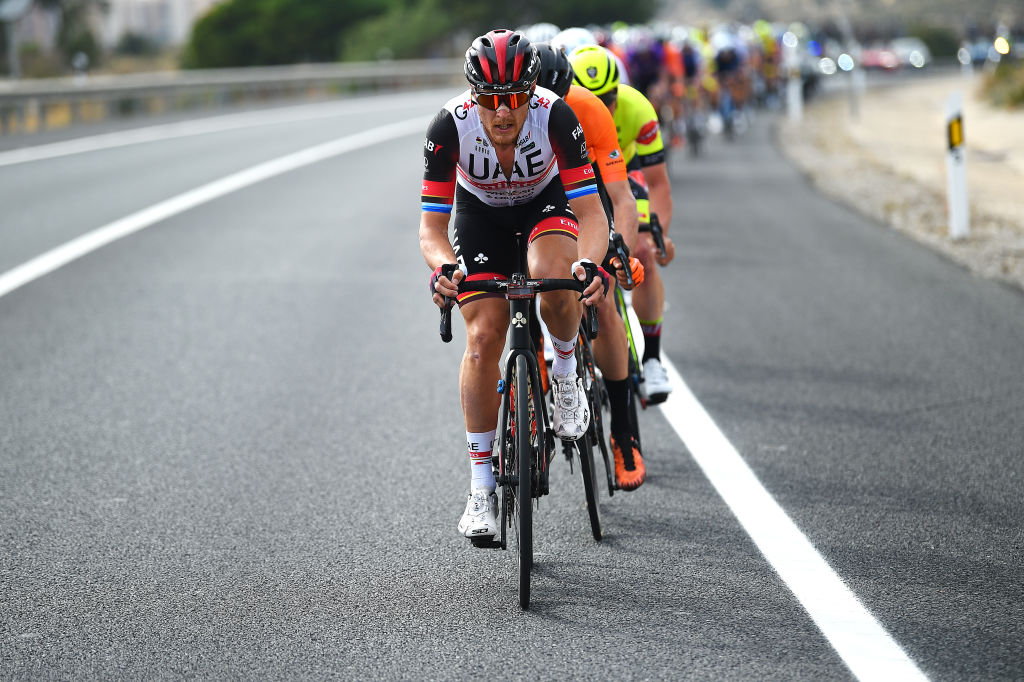Trentin: Froome is right but the problem is not time trial bikes – it's cars
'Sharing the roads has to be nicer than it is now' says Italian

Matteo Trentin has responded to Chris Froome's suggestion that time trial bikes should be banned for safety reasons, telling Cyclingnews the issue is not time trial bikes but bikes themselves, and that the real problem lies with the traffic-laden state of most roads.
Trentin is an active voice when it comes to safety, representing his fellow professionals via the pro rider's union, CPA, and sitting on UCI committee meetings. It was his recent comments on the need for gravel in road races that led Froome to tackle the wider issue of safety in a recent blog, which has sparked a big debate in the peloton over time trial bikes.
Froome, whose career was derailed by a crash on his time trial bike in 2019, argued that the aggressive head-down position was unsafe, especially when training on the open road.
He was speaking in the aftermath of Egan Bernal's life-threatening crash on a time trial bike and after Tom Pidcock had suggested pro riders needed to find a safer way to train for time trials.
"I will never be good in the TT, so I don't really care," Trentin — speaking at the start of Omloop Het Nieuwsblad in Gent — joked, before giving his true take on the matter.
"Of course, the point of Chris of training on the road with the TT bike is correct, but I would add that it's not a TT bike problem; the problem is the traffic, the problem is the amount of people in cars today.
"Actually, even the small roads in the countryside can be dangerous, but it's not because you have a TT bike; it's because you have a bike. You're not protected from crashing into a car, and people are getting more and more anxious to pass a bike for basically no reason.
Get The Leadout Newsletter
The latest race content, interviews, features, reviews and expert buying guides, direct to your inbox!
"It's actually a problem of how people are thinking sitting in a car, or maybe also sometimes how cyclists are thinking sitting on a bike. It has to be nicer. Sharing the roads has to be nicer than it is now."
Asked how things could change, Trentin explained that it's an issue that goes well beyond the world of professional cycling.
"It's habit. You need to change people's minds and that takes a lot of time," he told Cyclingnews.
"It's not a pro cycling thing. We are a small fraction of the people biking on the road every day — a really, really small fraction. The bigger user of the roads on the bike are tourists or even kids going to school or people going to work, and we need to be more concerned about them than about us. It's our job, we know how to act on the road.
"Of course, an accident can be behind every corner, but if you see the statistics, it's like 99 per cent of the people injured on bikes by traffic are normal people."
As for how Trentin, his fellow professionals, and the wider stakeholders in the sport can do their bit: "Send a message," he said.
"Be more involved in spreading the message to the world, even in the races — something we don't do for the moment. It's something like when the races become a breakthrough problem in the sport.
"Every sport sends a message. For the future of cycling, which parents are going to have their kids at 12-13 going on the road? I think nobody. If you want to have riders in 20 year's time you need to solve this problem, you need to address this problem."
Patrick is a freelance sports writer and editor. He’s an NCTJ-accredited journalist with a bachelor’s degree in modern languages (French and Spanish). Patrick worked full-time at Cyclingnews for eight years between 2015 and 2023, latterly as Deputy Editor.
